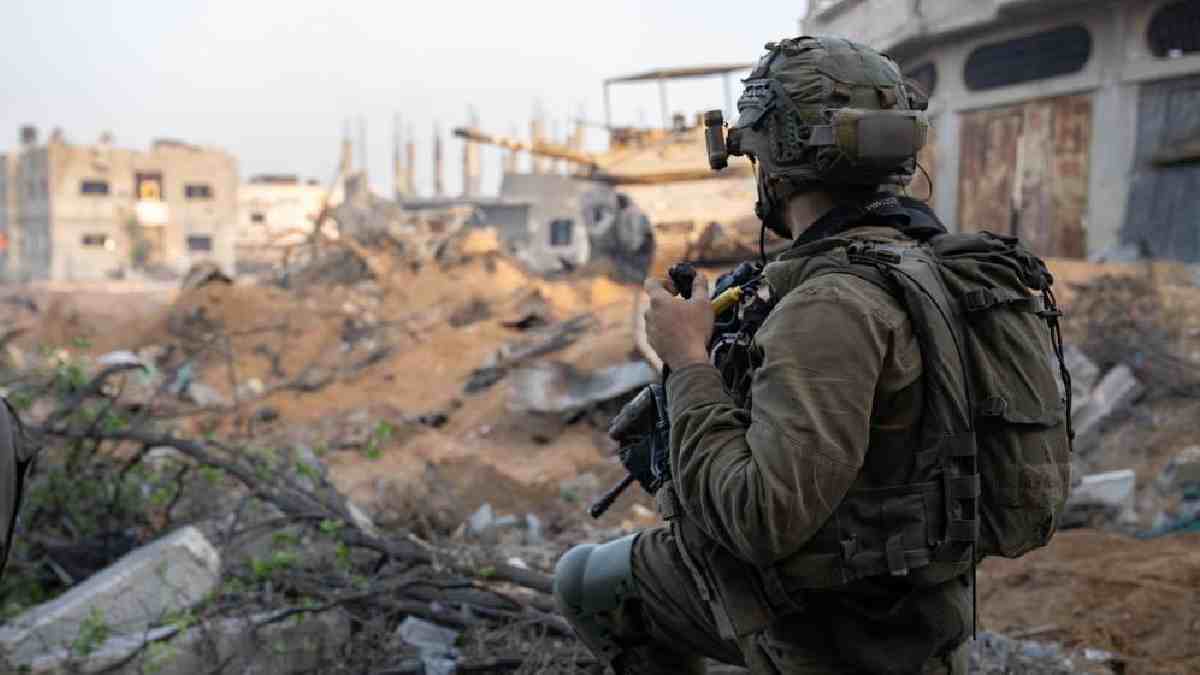In a joint statement on Tuesday, Germany and Poland asserted their stance, making it clear that they will not be dispatching troops to Ukraine. This announcement follows speculations that some Western nations might be contemplating military intervention as the war with Russia reaches its third year.
NATO Affirms No Plans for Troop Deployment
The head of NATO, echoing Germany and Poland, stated unequivocally that the U.S.-led military alliance has no intentions of sending troops to Ukraine. Central European leaders also confirmed their non-participation in providing soldiers for the conflict.
Kremlin Warns of Wider Conflict if NATO Sends Combat Troops
As tensions escalate, the Kremlin issued a stern warning, stating that a direct conflict between NATO and Russia would be inevitable if the alliance decides to deploy combat troops. Kremlin spokesman Dmitry Peskov emphasized the gravity of the situation, describing it not as a probability but as an inevitability.
Read More: Will Only Delay Israeli Military Offensive In Rafah’, PM Netanyahu On Cease-Fire Deal
Macron’s Controversial Remark Sparks Debate
French President Emmanuel Macron’s recent comment suggesting that Western ground troops should not be “ruled out” in the future stirred controversy. However, German Chancellor Olaf Scholz disputed Macron’s interpretation of the Paris meeting, asserting that there was consensus against sending ground troops.
French Government Clarifies Macron’s Statement on Troop Deployment
Facing criticism and opposition, the French government sought to clarify Macron’s comments. French Defense Minister Sébastien Lecornu stated that discussions at the conference centered around de-mining and military training operations in Ukraine, away from the front lines, rather than sending troops for combat.
NATO’s Unwavering Support for Ukraine Without Troop Deployment
NATO Secretary-General Jens Stoltenberg reiterated the alliance’s unwavering support for Ukraine but emphasized that there are no plans for NATO combat troops on the ground. NATO has been providing non-lethal aid and support, with some member countries individually sending weapons and ammunition.
European Nations Express Concerns and Solidarity
Amidst fears of reduced U.S. support and potential policy shifts, European nations, including France, Germany, and the U.K., signed 10-year bilateral security agreements with Ukraine. The conference in Paris aimed to strengthen Western support, especially as aid for Ukraine faces delays in the U.S. Congress.
Initiatives to Support Ukraine Outside the EU
European countries, including France, expressed support for the Czech Republic’s initiative to purchase ammunition shells for Ukraine outside the European Union. Macron announced the launch of a new coalition to deliver medium- and long-range missiles, highlighting the collective efforts to assist Ukraine in its defense.
NATO’s Recognition of Ukraine’s Right to Self-Defense
Stoltenberg condemned Russia’s aggression against Ukraine, emphasizing that Ukraine has the right to self-defense. While ruling out NATO military action, he did not oppose the idea of allowing Ukraine to use Western weapons to strike legitimate military targets in Russia, if necessary.













